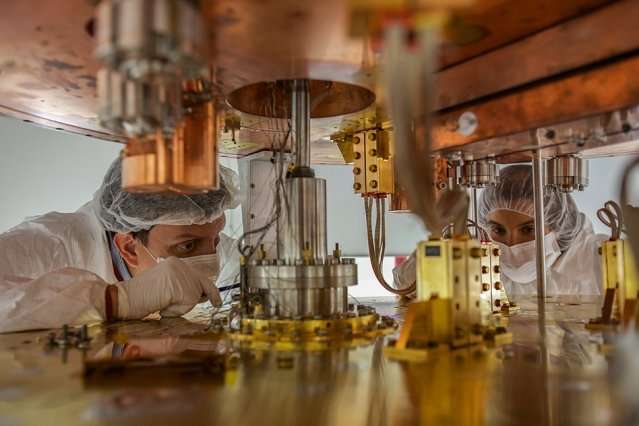Best of Last Week – Neutrino mountain experiment, solving the knuckle-pop puzzle and impact of parental conflict on kids

It was an interesting week for physics as an international team of researchers reported their first results from the neutrino mountain experiment—they are attempting to prove that the neutrino may be its own antiparticle, explaining why there appears to be so much more matter than antimatter in the universe. And a team led by Pieter van Dokkum of Yale University reported on the discovery of dark matter 'missing' from a galaxy far, far away—the ultra-diffuse galaxy is an oddity, they found, and its discovery calls into questions theories surrounding galaxy formation.
It was also an interesting week for human history and behavior as a team of archaeologists with the University of Exeter found that parts of the Amazon thought to be uninhabited were actually home to up to a million people—their study fills in major gaps in the history of the Amazon. Also, researchers from Northeastern Illinois University and UC Berkeley found that poor grades could be tied to class times that don't match student biological clocks—students out of sync with their circadian rhythm, they found, were more likely to have lower grades. And a joint team from Paris' Ecole Polytechnique and Stanford University made headlines when they found the answer to the knuckle-popping puzzle.
In other news, a team of researchers from several institutions in France made headlines when they reconstructed the face of a Cro-Magnon man, warts and all. The team came to believe that the Cro-Magnon man had a type of neurofibromatosis. Also making headlines was a report by a team of researchers from the U.S. and Israel describing a newfound 'organ' missed by the standard method for visualizing anatomy. And an international team of researchers wondered whether life could be adrift in the clouds of Venus. They suggested it might be possible and worthy of study. Also, a team at the University of California announced that they had found a virus that is able to adapt through a newly discovered path of evolution, and suggest their findings may explain how other viruses such as Ebola and Zika evolve so quickly.
And finally, if you are an adult with a history of social problems, you might be able to blame it on your parents, as a team at the University of Vermont found evidence that suggested parental conflict can do lasting damage to kids.
© 2018 Science X